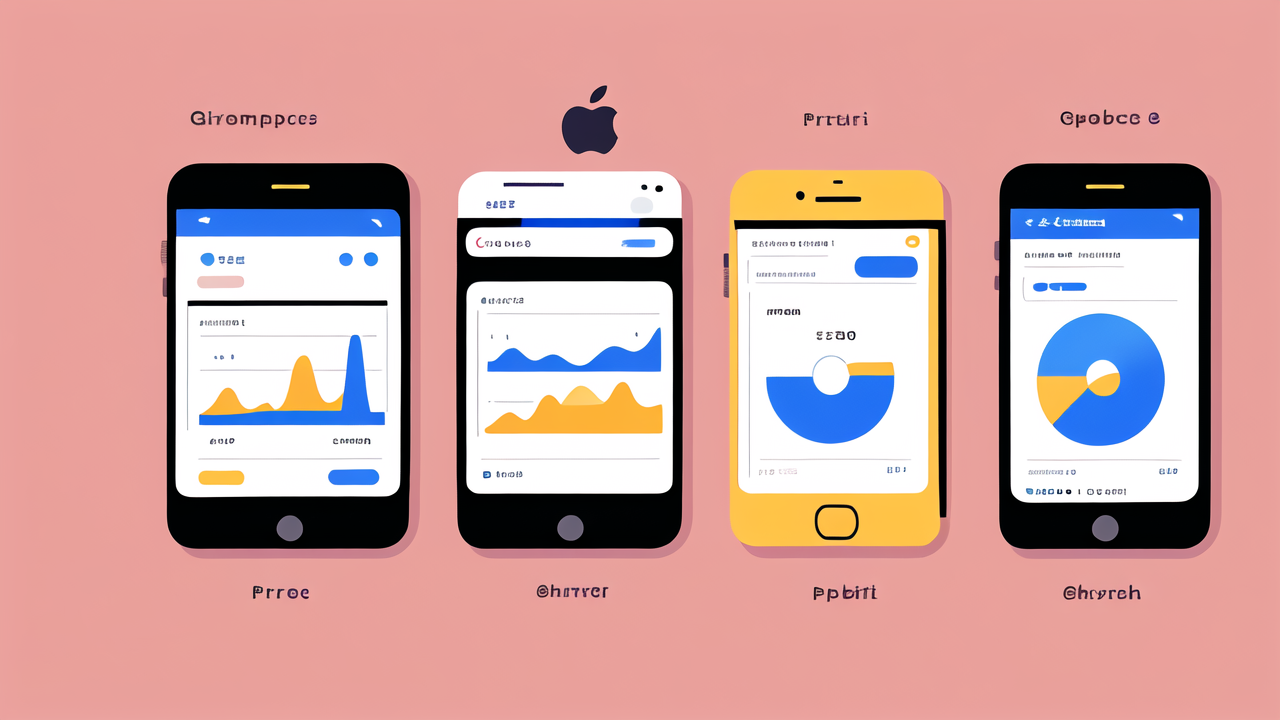The Rise of Smart Watches in the United States: Trends and Statistics
Understanding the Growth of Smart Watch Adoption
Smart watches have seen a surge in popularity in recent years. This growth is driven by several factors. Improved technology has made these devices more useful and appealing. Consumers are more health-conscious, and smart watches offer health tracking features. The rise of contactless payments has also boosted adoption.

Sales figures show a steady increase in smart watch purchases. In 2020, about 25% of US adults owned a smart watch. This number is expected to reach 30% by the end of 2023. Younger adults, aged 18-34, are the most likely to own smart watches. However, adoption is growing across all age groups.
Key Drivers of the Smart Watch Market
Several factors are driving the smart watch market:
- Health and fitness tracking
- Smartphone integration
- Contactless payments
- Improved battery life
- More stylish designs
Health tracking is a major selling point. Many people use smart watches to monitor heart rate, sleep patterns, and activity levels. Smartphone integration allows users to receive notifications and make calls from their wrist. This convenience is appealing to many consumers.
Contactless payments have become more popular, especially during the pandemic. Smart watches with this feature offer a convenient way to pay. Improved battery life means users can wear their devices for longer without charging. Finally, smart watches now come in a variety of styles, appealing to fashion-conscious consumers.
Comparative Analysis of Top Smart Watch Brands
Leading Brands and Their Market Position
The smart watch market is dominated by a few key players. Apple leads the pack with its Apple Watch series. Samsung and Fitbit follow closely behind. Other notable brands include Garmin, Fossil, and Huawei.

Apple holds about 40% of the global smart watch market share. Its success is due to strong brand loyalty and integration with other Apple products. Samsung is the leading Android-compatible smart watch maker. It offers a range of features at various price points.
Fitbit, now owned by Google, focuses on fitness tracking. It appeals to health-conscious consumers. Garmin targets outdoor enthusiasts with rugged designs and advanced GPS features. Fossil offers stylish options that look more like traditional watches.
Innovative Features that Set Smart Watches Apart
Smart watches are constantly evolving with new features. Some standout innovations include:
- ECG monitoring
- Blood oxygen level tracking
- Fall detection
- Cellular connectivity
- Always-on displays
ECG monitoring can detect irregular heart rhythms. This feature has potentially life-saving applications. Blood oxygen tracking became popular during the COVID-19 pandemic. It can help users monitor respiratory health.
Fall detection is useful for elderly users or those with health conditions. It can automatically call for help if a fall is detected. Cellular connectivity allows smart watches to function independently from smartphones. Always-on displays provide convenience, showing the time without needing to raise the wrist.
Consumer Preferences and Brand Loyalty
Consumer preferences in smart watches vary. Some prioritize health features, while others focus on style or integration with their smartphone. Brand loyalty plays a significant role in purchasing decisions.
Apple users often choose Apple Watches due to seamless integration with iPhones. Android users have more options but often lean towards Samsung or Fitbit. Price is also a factor, with some consumers opting for more affordable options from brands like Amazfit or Xiaomi.
Battery life is a key consideration for many users. Some prefer smart watches with longer battery life, even if it means fewer features. Others are willing to charge daily for more advanced functionality. Water resistance is important for active users who want to wear their watch while swimming or showering.
Assessing the Impact of Smart Watches on Health and Wellness
The Role of Smart Watches in Personal Health Management
Smart watches have become powerful tools for personal health management. They offer continuous monitoring of various health metrics. This data can help users make informed decisions about their health.

Key health features of smart watches include:
- Heart rate monitoring
- Step counting
- Sleep tracking
- Stress level monitoring
- Menstrual cycle tracking
These features allow users to track their health over time. They can spot trends and potential issues. Some smart watches can even detect signs of atrial fibrillation, a serious heart condition. This early detection can prompt users to seek medical attention when needed.
How Smart Watches Are Shaping Fitness Regimes
Smart watches have revolutionized how people approach fitness. They offer real-time tracking of workouts, providing motivation and accountability. Many smart watches include built-in workout programs and coaching features.
Users can set fitness goals and track their progress over time. Smart watches can measure metrics like distance covered, calories burned, and heart rate during exercise. This data helps users optimize their workouts and avoid overexertion.
Some smart watches offer social features, allowing users to compete with friends or join challenges. This gamification of fitness can increase motivation and make exercise more enjoyable. Integration with fitness apps expands the capabilities of smart watches, offering personalized workout plans and nutrition tracking.
Expert Insights on the Long-Term Health Benefits of Smart Watches
Health experts see potential in smart watches for long-term health improvement. Dr. John Smith, a cardiologist, notes, "Smart watches can help detect heart issues early. This early detection can lead to better outcomes for patients."
Fitness coach Sarah Johnson adds, "Smart watches make it easier for people to stay active. The constant reminders and tracking can help form healthy habits." However, experts also caution against over-reliance on smart watch data. They stress the importance of regular check-ups with healthcare professionals.
Privacy concerns remain a topic of discussion among health experts. The collection of sensitive health data raises questions about data security and use. As smart watches continue to evolve, addressing these concerns will be crucial for widespread adoption in healthcare settings.




Leave a comment
This site is protected by hCaptcha and the hCaptcha Privacy Policy and Terms of Service apply.